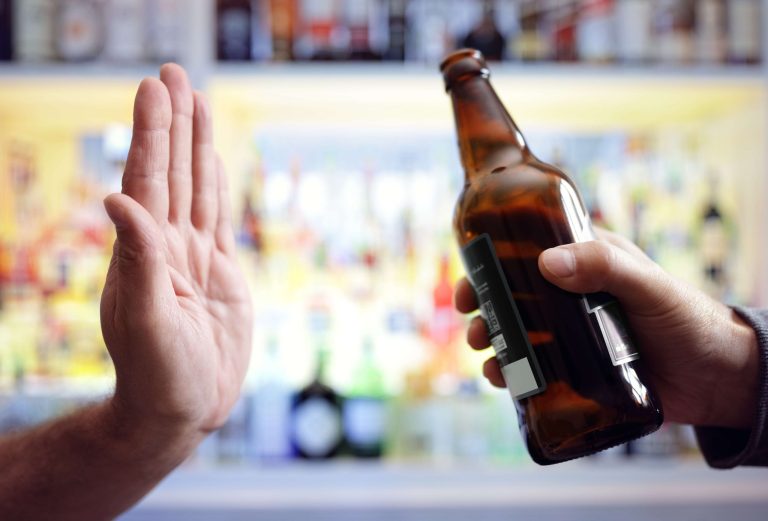It’s recommended that most adults aim for at least 150 minutes of moderate aerobic physical activity (or 75 minutes of vigorous activity) each week and engage in regular resistance training. A sedentary lifestyle 4 Ways to Make Amends in Recovery is one of the biggest risk factors for negative health events. It involves prolonged sitting throughout the day (e.g., watching TV, sitting at a work desk, long commutes, playing video games, etc.) (37, 38).
There are a number of reasons you might gain weight after you quit drinking. For example, if you reach for a soda every time you would have previously reached for a beer, you’ll end up consuming a lot of calories, possibly more than before. Studies show that many factors affected by heavy alcohol use contribute to weight gain, including sleep quality, sugar content, metabolism and more. Increased body fat due to low testosterone levels further impairs the body’s ability to effectively produce and utilize this hormone. This leads to a vicious cycle of weight gain and increased belly fat.
Alcohol Intake and Obesity: Experimental Evidence
An ounce of beer or wine, on the other hand, will have about 12 and 24 calories per ounce, respectively. It’s thought that changes in bacteria diversity may lead to changes in energy and nutrient metabolism, stimulate inflammation, and alter hormone regulation, leading to weight gain. That said, further research into this topic is needed (72, 73, 74, 75). Menopause officially occurs one year after a woman has her last menstrual period. Though menopause affects all women differently, in general it tends to cause fat to be stored in the abdomen, rather than on the hips and thighs.(59, 60, 61, 62) . To increase your protein intake, try to include a high quality protein source at each meal and snack, such as lean meat, poultry, tofu, eggs, beans, and lentils.
The participants were matched with a control group of 34 people of a similar age who were either non-drinkers or light drinkers. To conduct their study, the researchers collected data from 68 people ages 28 to 70 with alcohol use disorder. If you only enjoy flavored drinks, try adding a bit of fresh ingredients like mint or a few raspberries. Gradually cut back on the amount you add so that it’s just a splash for a touch of flavor. As a general rule, the higher the alcohol content of a beverage (a.k.a. alcohol by volume or ABV), the more calories, Keith Wallace, founder of the Wine School of Philadelphia, previously told Shape. That means a shot of hard liquor like gin, whiskey, or vodka ( proof) will have about calories per ounce.
Weight And Health
There are several direct and indirect ways that heavy drinking can make you gain weight or, more specifically, gain body fat. Alcohol can also cause weight gain, which can resemble bloating. This weight gain stems from the high number of calories in many alcoholic drinks.

While maintaining a moderate body weight and body fat percentage is important for good health, the type of belly fat you store can influence your health differently. Before diving into the correlation between alcohol, weight gain, and inflammation, let’s first discuss what defines excessive alcohol consumption, and what impact it has on the body. It can cause brain and liver damage, and it increases your risk of cancers as well as your risk of death from car crashes, injuries, homicides, and suicide. Most heavy drinkers will develop a hefty beer gut or wine tummy. But even if you don’t consume massive amounts of alcohol, you could still be subjecting yourself to serious weight gain.
Other Ways Alcohol Can Affect Your Body
This leads to decreased digestive secretions and movement of food through the tract. Plus, lower testosterone levels may affect quality of sleep, especially in older men. Alcohol — the intoxicating ingredient found in beer, wine, and liquor — is produced by the fermentation of grains, fruits, or other sources of sugar. Alcohol bloating due to acute gastritis usually disappears within a few days, but chronic gastritis symptoms can last months or even years. The duration of alcohol bloating will depend on its cause and the individual.
In addition, excess alcohol intake may hinder how your body burns energy and fat. Eliminating or reducing alcohol consumption is a common dieting behavior. Less well known, and indeed potentially harmful to the health of the dieter, is eliminating food almost entirely https://g-markets.net/sober-living/100-most-inspiring-addiction-recovery-quotes/ in order to consume alcohol. According to the National Eating Disorders Association, some individuals may suffer both from anorexia and an alcohol use disorder. They often drink rather than eat, believing that alcohol consumption will suppress their appetite.
It has been examined across small and large cohorts, in many countries, across various ethnicities and age groups [4]. Within the large body of observational research, contradictory findings exist, which warrant further exploration [3•, 4]. All of these calories mean that frequent drinking can lead to relatively easy weight gain. Depending on what you order or pour, just one drink might contain anywhere from fifty to several hundred calories. Have you ever noticed puffiness in your face and your body after a long night of drinking alcohol? Bloating is one of the most common effects drinking alcohol can have on the body.
What drinking alcohol does to your running body (and mind) – Runner’s World UK
What drinking alcohol does to your running body (and mind).
Posted: Fri, 20 Jan 2023 08:00:00 GMT [source]
You’ve doubled the recommended caloric intake of an entire day in the span of a few hours. Now that alcohol is in your body, it is being converted to acetate, which your body LOVE, LOVE, LOVES. Or maybe you’ve had a rough day and treated yourself to half a standard bottle of Rosé. BetterHelp offers affordable mental health care via phone, video, or live-chat.
